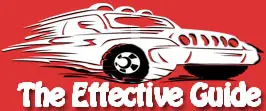Last Updated on May 13, 2025
If you’re running a business that relies on vehicles, understanding the commercial auto insurance cost is absolutely essential. This type of insurance protects your company from financial losses due to accidents, theft, or damage involving business vehicles. However, the cost of commercial auto insurance can vary widely, depending on several critical factors such as your location, vehicle type, the age of the driver, driving record, and the type of business you operate.
In this article, we’ll break down everything you need to know about the cost of commercial auto insurance, how it’s calculated, and most importantly, how to reduce your premium without compromising coverage.
What Is the Average Commercial Auto Insurance Cost?
On average, commercial auto insurance costs about $142 per month, which equals approximately $1,704 per year. This is considered the median price, meaning some businesses pay less while others pay much more. The exact rate will depend on the insurance provider and your unique business profile.
If you choose an annual payment plan, some companies may offer a discount—bringing your total to about $1,600 to $1,750 annually. On the other hand, opting for monthly payments might include additional service fees.
Those seeking more comprehensive coverage or higher liability limits can expect to pay significantly more. Premium packages are designed to offer robust protection in case of major incidents, including lawsuits or catastrophic vehicle damage.
Key Factors That Determine Your Commercial Auto Insurance Premium
Understanding what drives the cost can help you plan better and save more. Here are the primary factors insurance providers consider:
1. Location and Driving Area
The geographical region where your vehicles operate has a significant impact. Urban areas with dense traffic and higher accident rates typically result in higher premiums. In contrast, if your vehicles mostly operate in rural or low-traffic zones, your premiums will likely be lower.
2. Type and Size of the Vehicle
The size, value, and use of the vehicle greatly influence the cost. For instance:
- Light-duty vans may cost around $1,200–$2,000 per year
- Pickup trucks may cost $1,500–2,500 annually
- Box trucks can go up to $3,000–4,000 annually
- Buses or heavy commercial trucks may cost $6,000–9,420 per year
Heavier and more complex vehicles are typically more expensive to insure due to higher repair costs and potential damage.
3. Distance and Frequency of Driving
The more your commercial vehicles are on the road, the higher the chances of accidents. Long-haul or delivery drivers who travel hundreds of miles each week will pay more than a local plumber who drives to a few locations nearby.
4. Driver’s Age and Experience
Younger, inexperienced drivers typically attract higher premiums. A driver over 25 with several years of clean driving experience will help lower insurance costs. Always make sure your hired drivers have a solid record.
5. Driving Record and Claims History
Insurance companies reward safe drivers. A clean driving record with no history of accidents or violations can lower premiums. However, if your business or driver has a history of claims, expect to pay significantly more.
6. Credit Score
Some insurers evaluate your credit score when determining premiums. A higher credit score reflects responsibility and can help you qualify for better rates.
7. Business Type
Different industries carry different risks. For example, if you’re transporting hazardous materials like gas, chemicals, or dry ice, your premium will be higher than a florist using a delivery van.
Tips to Reduce Your Commercial Auto Insurance Cost
Worried about high premiums? Here are practical ways to lower the cost of your commercial auto insurance:
i) Maintain a Clean Driving Record
Train your drivers and enforce safe-driving policies. A record with no traffic violations or accidents leads to discounts from most insurers.
ii) Hire Experienced Drivers
If you’re not the one driving, hire professionals with proven records. A good driver’s profile can positively impact the quote you receive.
iii) Shop Around and Compare Quotes
Don’t settle on the first offer. Get multiple quotes from different companies and compare coverage, premiums, and discounts. Tools like online quote comparison sites can help streamline the process.
iv) Bundle Insurance Policies
Some providers offer discounts when you bundle commercial auto insurance with general liability, workers’ compensation, or property insurance.
v) Choose Higher Deductibles
Opting for a higher deductible can lower your monthly or yearly premiums. However, be sure you can afford the deductible amount in case of a claim.
vi) Install Safety Features and GPS
Vehicles equipped with anti-theft systems, dashcams, lane-assist technology, or GPS tracking may qualify for additional safety discounts.
vii) Ask About Discounts
Many insurance companies offer hidden or situational discounts. Ask specifically about:
- Loyalty discounts
- Safe fleet discounts
- Paid-in-full discounts
- Paperless billing discounts
viii) Use a Trusted Insurance Broker
Brokers understand the market and can help you find a policy that offers the best balance between cost and coverage. They often have access to special pricing and know how to negotiate with underwriters.
How to Choose the Right Coverage Plan
Don’t let low prices mislead you. Sometimes cheaper insurance doesn’t cover enough when disaster strikes. Here’s how to choose wisely:
- Assess the value of what you’re insuring: Are your vehicles transporting valuable equipment or hazardous materials?
- Understand your liability exposure: If your vehicle hits someone, will the minimum policy limits be enough?
- Consider your financial ability to self-insure: Can your business afford out-of-pocket costs if damage exceeds coverage?
For example, a construction company transporting heavy machinery may need a different policy than a local bakery delivering cupcakes. Work with an insurance advisor to determine how much liability, comprehensive, and collision coverage your business needs.
What’s Typically Covered Under Commercial Auto Insurance?
A standard commercial auto insurance policy includes:
- Liability Coverage – for bodily injury and property damage you cause to others
- Collision Coverage – covers damage to your vehicle from a crash
- Comprehensive Coverage – protection from non-collision incidents (theft, weather, vandalism)
- Medical Payments – pays for medical costs regardless of fault
- Uninsured/Underinsured Motorist Coverage – protects you if the other driver lacks insurance
Optional add-ons include roadside assistance, rental reimbursement, and trailer interchange.
FAQs About Commercial Auto Insurance Cost
1. Is commercial auto insurance tax-deductible?
Yes, premiums paid for commercial auto insurance are generally tax-deductible as a business expense.
2. Can I use personal auto insurance for business vehicles?
No. If a personal vehicle is used for business purposes, you must inform the insurer or switch to commercial coverage to avoid claim denial.
3. How often do premiums increase?
Most insurers review and adjust premiums annually based on claims, driving records, and inflation.
4. Can I pause my commercial auto insurance?
In most cases, no. If your vehicle is not in use, consider switching to a “storage” policy rather than canceling coverage.
5. Do I need insurance for leased or rented business vehicles?
Yes. Even leased or rented vehicles used for business require proper commercial insurance.
Final Thoughts on Commercial Auto Insurance Cost
The cost of commercial auto insurance might seem high at first, but it’s a necessary investment to protect your business and livelihood. With a clear understanding of the influencing factors and cost-saving strategies, you can make smarter decisions that balance both coverage and budget.
Always evaluate your business risks, compare multiple insurance quotes, and consult with a licensed insurance agent. Your goal shouldn’t be just finding the cheapest plan—but finding the right one that truly protects your business when it matters most.
Kevin Nicholas is an automotive technician who is a genius at software and hardware-related issues. He manually tested more than a hundred OBD scanners and gave his honest opinion on whether the device was worth the money or not. His in-depth OBD review articles help people choose the right product, whether it is a European, American, or Asian vehicle. He completed his Automotive Specialized Training Course at Universal Technical Institute and has more than 15 years of experience in the field.

